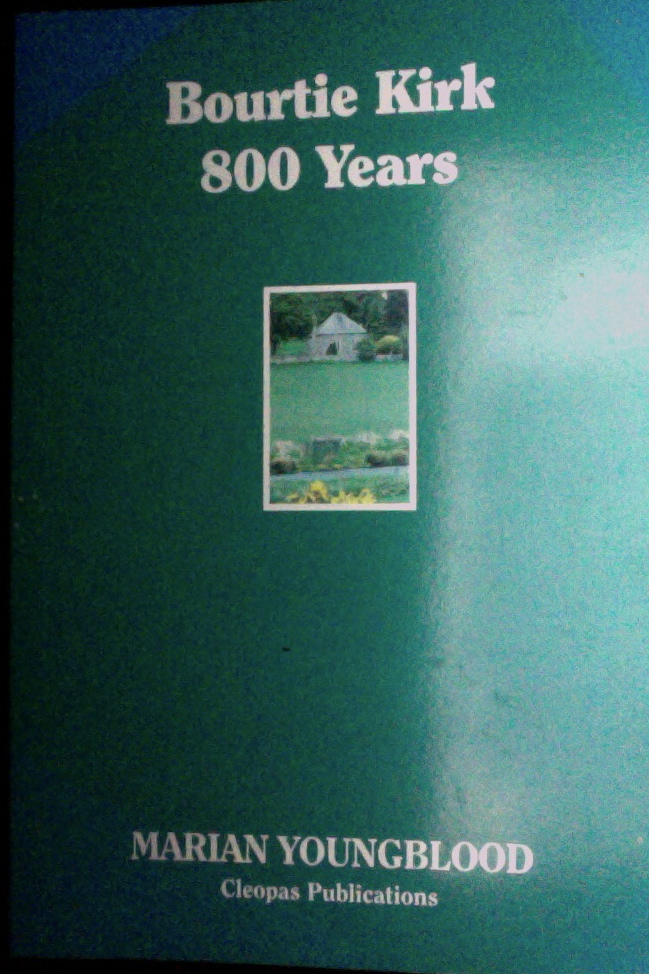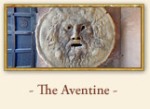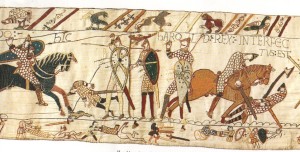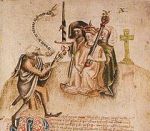Party games and Mnemonics
The festive season is here.It’s the time for feeling peaceful, sharing joy and being merry; it’s also time for exercise: not of the body perhaps, but of the mind.
Trivial Pursuit used to be very fashionable; Scrabble keeps the cogs oiled, but old poems and rhymes that jog the cogs have a place too.
Whichever way your mind works, the mnemonic that fits the season is one that comes from the far north: its about wood and logs and burning those valuable resources we now cherish so much and burn less frequently. In Scotland, where we still burn logs in woodstoves and open hearths to celebrate solstice and Yule – Christmas and Hanukkah – wherever it is cold enough to warrant a blazing fire, this poem is not only something to remember the season by, but to remember the value of each yule log that we consume. Precious resource, indeed, but what joy it brings.
Wood for the Season: log burning rhyme
Beechwood fires burn bright and clear
If the logs are kept a year;
Store your beech for Christmastide
With new-cut holly laid beside;
Chestnut’s only good, they say,
If for years ’tis stored away;
Make a fire of the elder tree,
A death within the house you’ll seeBut ash green or ash old
Birch and fir logs burn too fast
Is fit for a Queen with a crown of gold.
Blaze too bright and do not last;
Flames from larch will shoot up high,
Dangerously the sparks will fly;
It is by the Irish said
Hawthorn bakes the sweetest bread;
Elm-wood burns like churchyard mould,
E’en the very flames are cold;But ash wood green and ash wood brown
Are fit for a Queen with a golden crown.Oaken logs, if dry and old,
Keep away the winter’s cold;
Poplar gives a bitter smoke,
Fills your eyes and makes you choke;
Apple wood will scent the room,
With an incense like perfume.
Pear wood smells like flowers in bloom;But ash green or ash dry
For a Queen to warm her slippers by.
According to my grandfather, a childlike lovable old churchman who never wished to stop learning, the Victorians were great ones for mnemonics: for the wind and compass directions in clockwise order:
Never Eat Shredded Wheat
to remembering which side of the ship you were on on an ocean voyage:
The ship’s left port
or, more obscure,
Port wine should be left alone when it is red
This suggests port (left) red, so starboard (right) green. However, my grandfather also liked an occasional glass of port himself and his explanation was that as after dinner port is always traditionally passed around the table to the left; the “port” light is always red, just as port wine is always red.
His many interests included classical languages, the rivers of the world, the seven hills of Rome and how to remember them. While I doubt that too many reading this will have a need for mnemonics for such trivia, you never know; it might come in handy one day.
Firstly, the World’s greatest/longest Rivers:
The Great Lakes from West to East:NAM-MI YACH-Y
Nile (Africa) – 4,145 miles
Amazon (South America) – 4,050 miles
Mississippi-Missouri (USA) – 3,760 miles
Irtysh (Russia) – 3,200 miles
Yangtse (China) – 3,100 miles
Amur (Asia) – 2,900 miles
Congo (Africa) – 2,718 miles
Huang-Ho or Yellow (China) – 2,700 miles
Sam’s Horse Must Eat Oats
The Seven Hills of Rome:
Can Queen Victoria Eat Cold Apple Pie?
To remember the seven hills of Rome
and for those of us who might have to look that one up: they are:
the Capitoline, Quirinal, Viminal, Esquiline, Caelian, Aventine, and the Palatine hills.
Roman numerals, too, in ascending order, for the classics scholar with a bad memory:
Lucky Cows Drink Milk
L = 50, C = 100, D = 500 and M = 1000.
And while on number, he had a mnemonic to help him remember the exact decimal value of Pi to the twentieth place! Counting the number of letters in each word of the sentence in order gives the value of Pi = 3.141592653 etc.
Sir, I send a rhyme excelling
In sacred truth and rigid spelling
Numerical sprites elucidate
For me the lexicon’s dull weight.
I prefer the simpler version of Pi to a mere seven places:
May I have a large container of coffee?
His wide reading brought him into much more esoteric branches of learning, which I won’t elaborate on – such things as Pythagorean theory, [a very non-pc version: ‘The Squaw on the Hippopotamus is equal to the sum of the Squaws on the other two Hides’] Lord Nelson’s injuries(!), remembering the names of world oceans and continents, and the date of the Wright Brothers’ first successful flight.
 The Colours of the Rainbow are worth quoting:
The Colours of the Rainbow are worth quoting:
Richard of York Gave Battle In Vain
which my mother (his daughter) abbreviated to the acronym: ROYGBIV.
Henry the Eighth’s six wives:
‘Divorced, beheaded, died;
Divorced, beheaded, survived.’
They were: Catherine of Aragon, Ann Boleyn, Jane Seymour, Anne of Cleves, Kathryn Howard and Katherine Parr.
His greatest mnemonic was, for me, the poem of the succession of the Kings and Queens of England from William the Conqueror, 1066. Not the Scots, or Kings of Picts, mind you; something I wished for at the time and tried in later life to create a mnemonic for and failed miserably. [It is quite difficult to place King Dubh, Kings Aedh, Custantin, Fergus and King Nechtan into a rhyme!]
This one is still popular and while you have to remember another rhyme to insert each monarch into his/her houses, (Plantaganet, etc.), it has a ring to it:
Kings and Queens of England from 1066
[sometimes:
Willy, Willy, Harry, Stee,
Harry, Dick, John, Harry Three;
One, two, three Neds, Richard Two,
Harries Four Five Six, then who?
Edwards Four Five, Richard Three,
Two Harries, Edward and Bloody Mairee;
Elizabeth the Virgin Queen
Two Jameses with Charlies in between
Mary, Bessie, James ye ken,
Then Charlie, Charlie, James again)William and Mary, Anna Gloria
Four Georges, William and Victoria
Edward Seven next, and then
Came George the Fifth in nineteen ten
Ned the Eighth soon abdicated
Then George the Sixth was coronated
After which Elizabeth
And that’s all folks until her death.
The Royal Houses to which those monarchs belonged:
No Plan Like Yours
To Study HISTORY Wisely(Norman (1066-), Plantaganet (1154-), Lancaster (1399-), York (1461), Tudor (1485-), Stuart (1603-), Hanover (1714-1901), Windsor (1901/1917-present))
Like Winston Churchill, whom he admired although a younger man, he could recite by heart: Greenleaf Whittier’s Ballad of Barbara Fritchie, a stirring epic from the American Civil War.
Up from the meadows rich with corn,
Clear in the cool September morn,The clustered spires of Frederick stand
Green-walled by the hills of Maryland.
It goes on for another thirty verses, but its most poignant couplet tells of an order from Stonewall Jackson himself:
‘Who touches a hair of thon gray head
Dies like a dog. March on,’ he said.
It is a fact that Winston Churchill, while visiting Frederick, Maryland in 1943, held up his own welcome party while he stood in front of the house where she is said to have waved the Union flag in Stonewall Jackson’s face; and recited the poem from beginning to end. It is not reported whether his hosts were particularly pleased by this recitation; but my grandfather was!
Of course the old minister would recite from every verse of ‘Remember, Remember the Fifth of November’, Henry Wadsworth Longfellow’s Wreck of the Hesperus and he was particularly fond of ‘Peter, Andrew, James and John, Hold the Horse while I get on’ -a mnemonic for the first four of the 12 disciples.
With such a mentor, is it any wonder that my education was, to say the least, eclectic?
I don’t have to repeat the mnemonic for the months of the year because I think that is one rhyme which has filtered down through oral tradition into the consciousness of now. [Unless someone really doesn’t know and writes me a comment/request to that effect!]
However I think my grandfather would have loved to hear a hurricane rhyme which I learned in the Bahamas in the early ‘sixties: in these times of changing world climate and strange seasons, it is reassuring to find the hurricane season stays (roughly) the same…
Hurricane Season
‘June, too soon;
July, stand by;
August come it must;
September, remember;
October, all over.’
My grandfather had ways of remembering the Arabic names of stars and constellations, too, but I think we’ve covered enough ground for one festive blog. Those gems will have to wait for another time.
Happy solstice.
December 14, 2009 Posted by siderealview | ancient rites, culture, history, popular, seasonal | 1066, Amazon, American Civil War, ash, Barbara Fritchie, beech, compass directions, continents, festive, fire, Frederick MD, Henry VIII, Hesperus, hurricane rhyme, Kings of England, logs, Longfellow, mnemonic, oak, oceans, Pi, Pythagoras, Queen, Rome, scrabble, Stonewall Jackson, trivia, Whittier, wood-burning | 2 Comments
About
Lots of writers use a nom de plume to distinguish between their personae – it’s the way publishing works. Blogs, too. What choice, what abundance: we can be guided by all our Muses and still retain our integrity (who doubts it?)if we are prone to take one persona more seriously than another. For this blog I become this particular blogger because the material is time-sensitive; the research is all coming together now and our way forward is mapped. That said, it’s up to us whether we take the information and run with it.
Top Posts
YoungbloodBlog Stats
- 116,915 hits
-
Latest posts
- March In Like a Lamb,Out Like a Lion:Does Ancient Rhyme Predict More Climate Crises or Solutions?
- February Packed Full of Festivals Both Ancient & Modern—an Unholy Cultural Mix North and South of Equator
- Stepping Ahead into 1st Quarter of 21stCentury While Looking Back to the Goode Olde Days
- Sun’s Coronal Hole-Combo-Climate Crisis Make for “Interrresting” December Human Conditions +Airliner Surprise
- November Remembered for ‘Gunpowder, Treason & Plot’:420yrs Later Have We Learned Anything?
RSS Feed
astro
Youngblood BlogArchives
- March 2024
- February 2024
- January 2024
- December 2023
- November 2023
- October 2023
- September 2023
- August 2023
- July 2023
- June 2023
- May 2023
- April 2023
- March 2023
- February 2023
- January 2023
- September 2022
- August 2022
- July 2022
- June 2022
- May 2022
- April 2022
- March 2022
- February 2022
- January 2022
- December 2021
- November 2021
- October 2021
- September 2021
- August 2021
- July 2021
- June 2021
- May 2021
- April 2021
- March 2021
- February 2021
- January 2021
- December 2020
- November 2020
- October 2020
- September 2020
- August 2020
- July 2020
- June 2020
- May 2020
- April 2020
- March 2020
- February 2020
- January 2020
- December 2019
- November 2019
- October 2019
- September 2019
- August 2019
- July 2019
- June 2019
- May 2019
- April 2019
- March 2019
- February 2019
- January 2019
- December 2018
- November 2018
- October 2018
- September 2018
- August 2018
- July 2018
- June 2018
- May 2018
- April 2018
- February 2018
- January 2018
- December 2017
- November 2017
- October 2017
- September 2017
- August 2017
- March 2017
- February 2017
- January 2017
- December 2016
- November 2016
- October 2016
- September 2016
- August 2016
- July 2016
- June 2016
- May 2016
- April 2016
- March 2016
- February 2016
- January 2016
- December 2015
- November 2015
- October 2015
- August 2015
- July 2015
- June 2015
- May 2015
- April 2015
- March 2015
- February 2015
- January 2015
- December 2014
- November 2014
- September 2014
- June 2014
- March 2014
- February 2014
- January 2014
- November 2013
- October 2013
- September 2013
- August 2013
- July 2013
- June 2013
- May 2013
- April 2013
- March 2013
- February 2013
- January 2013
- December 2012
- November 2012
- October 2012
- September 2012
- August 2012
- July 2012
- June 2012
- May 2012
- April 2012
- March 2012
- February 2012
- January 2012
- December 2011
- November 2011
- October 2011
- September 2011
- August 2011
- July 2011
- June 2011
- May 2011
- April 2011
- March 2011
- February 2011
- January 2011
- December 2010
- November 2010
- October 2010
- September 2010
- August 2010
- July 2010
- June 2010
- May 2010
- April 2010
- March 2010
- February 2010
- January 2010
- December 2009
- November 2009
- October 2009
- September 2009
- August 2009
 The Stellar Perspective
The Stellar Perspective- Oriental Year of Dragon 2024 & Lunar New Year Zodiac
- Early Saints & Religious Houses in Scotland with Placenames derived from Pictish/Brittonic/Celtic
- U.S. Memorial Day Means Different Strokes for Different Folks
- Hokole’a Hawai’ian-built Canoe to Circumnavigate Pacific— 47,000 Miles over Next Four Years
- Time to Tempt Humans to Act like Telosians—Delving Deep Within to Discover our Origins As Star-People
- Canticle for a lost Nation—Pictish Roots Surface in Stone, Royal Forests & Names
- The Janus Effect—Riding into the New on an Old Horse
- Boudicca: Great Queen of the Iceni
- 2020 Backward Take on 2012: Stargate Portal to Final Quarter
- Volcanic Surprise: Take your Toys and Go Home
Youngbloodblog calendar of posts
April 2024 M T W T F S S 1 2 3 4 5 6 7 8 9 10 11 12 13 14 15 16 17 18 19 20 21 22 23 24 25 26 27 28 29 30 Solar & Geomagnetic field indicator (NOAA)
From n3kl.orgSolar X-rays:
Geomagnetic Field:

Meta
 Derilea’s Dream: Pictish essentials
Derilea’s Dream: Pictish essentials- The Glory that Was Sail
- Guest Blog from the Granite Past to a Future Historian
- Boudicca: Great Queen of the Iceni
- The Sueno’s Stone Cover-up
- Maiden Stone of Bennachie
- Bibliography: The Church in Pictland
- Warlord centres of Pictland:glimpses into a lost history
- Gaels progress through Pictland via the Church
- Hello world!
Shakeout prepared

Related Pages
Picosecond Pulse Ripples Gold on Glass
Recent Comments
Marian’s SHASTA:Critical Mass

bumpy ride ahead

‘Phantom’s Child’

Nano 2011 win

Weblog Pages
SHASTA: backstory

-
Join 605 other subscribers
Circlemakers
Enchantment
Blackbird pie tweets
Tweets by siderealviewShakeOut preparedness
Bourtie Kirk: 800 Years

Geometry code

Cloud of Thought
Aberdeenshire agents Alex Cavanaugh Alex J Cavanaugh Amazon astrology Aurora Borealis autumn Baby Boomers Bahamas blogging bloghop Buchan Burning Man Caledonian Forest Caledonian Pine calendar candlemas consciousness crop circles deadline Deeside earthquake Easter eclipse equinox fiction fire festival fireworks Forteviot full moon Glorious Twelfth Grand Cross Green Turtle Cay Groundhog Day Hawaii Hogmanay humpback whale Iceland iGen Insecure Writers Insecure Writers Support Group IWSG Jupiter Klamath River lammas light Mardi Gras Mars Mercury moon Moray Moray Firth Muse NaNoWriMo Neptune new moon novel ocean Pisces rewilding Rome Saturn sci-fi Scotland Scots Pine snow solstice Uranus Venus volcano weather WIP writing Yurok Devorguilablog: view from Pictish Citadel
Devorguilablog: view from Pictish Citadel- Pictish Power Centre discovered at Rhynie: stronghold in Aberdeenshire heartland
- Black Glen Cailleach/Bodach Stones threatened
- PICTISH KINGLISTS and the PICTISH CHRONICLE
- Nechtan’s Pictish Nation: 8thC Strongholds of the new religion
- Pictish inheritance in an ancient land
- Canticle for a lost Nation
- Canticle III: Nechtan of Derley
- Devorguila’s lineage: where did it go?
cosmic consciousness

Archives
- March 2024 (1)
- February 2024 (1)
- January 2024 (1)
- December 2023 (1)
- November 2023 (1)
- October 2023 (1)
- September 2023 (1)
- August 2023 (1)
- July 2023 (1)
- June 2023 (1)
- May 2023 (1)
- April 2023 (1)
- March 2023 (1)
- February 2023 (1)
- January 2023 (1)
- September 2022 (1)
- August 2022 (1)
- July 2022 (1)
- June 2022 (1)
- May 2022 (1)
- April 2022 (1)
- March 2022 (1)
- February 2022 (1)
- January 2022 (1)
- December 2021 (1)
- November 2021 (1)
- October 2021 (1)
- September 2021 (1)
- August 2021 (1)
- July 2021 (1)
- June 2021 (1)
- May 2021 (1)
- April 2021 (1)
- March 2021 (1)
- February 2021 (1)
- January 2021 (2)
- December 2020 (1)
- November 2020 (1)
- October 2020 (1)
- September 2020 (1)
- August 2020 (1)
- July 2020 (1)
- June 2020 (1)
- May 2020 (1)
- April 2020 (1)
- March 2020 (1)
- February 2020 (1)
- January 2020 (1)
- December 2019 (1)
- November 2019 (1)
- October 2019 (1)
- September 2019 (1)
- August 2019 (1)
- July 2019 (1)
- June 2019 (1)
- May 2019 (1)
- April 2019 (1)
- March 2019 (1)
- February 2019 (2)
- January 2019 (1)
- December 2018 (1)
- November 2018 (1)
- October 2018 (2)
- September 2018 (1)
- August 2018 (1)
- July 2018 (1)
- June 2018 (1)
- May 2018 (1)
- April 2018 (1)
- February 2018 (1)
- January 2018 (1)
- December 2017 (2)
- November 2017 (1)
- October 2017 (1)
- September 2017 (1)
- August 2017 (1)
- March 2017 (1)
- February 2017 (1)
- January 2017 (1)
- December 2016 (1)
- November 2016 (1)
- October 2016 (1)
- September 2016 (1)
- August 2016 (1)
- July 2016 (1)
- June 2016 (1)
- May 2016 (1)
- April 2016 (1)
- March 2016 (1)
- February 2016 (1)
- January 2016 (1)
- December 2015 (1)
- November 2015 (1)
- October 2015 (1)
- August 2015 (1)
- July 2015 (1)
- June 2015 (1)
- May 2015 (1)
- April 2015 (2)
- March 2015 (1)
- February 2015 (1)
- January 2015 (1)
- December 2014 (1)
- November 2014 (1)
- September 2014 (1)
- June 2014 (1)
- March 2014 (1)
- February 2014 (1)
- January 2014 (1)
- November 2013 (2)
- October 2013 (1)
- September 2013 (1)
- August 2013 (1)
- July 2013 (1)
- June 2013 (1)
- May 2013 (1)
- April 2013 (1)
- March 2013 (1)
- February 2013 (1)
- January 2013 (1)
- December 2012 (1)
- November 2012 (1)
- October 2012 (1)
- September 2012 (1)
- August 2012 (2)
- July 2012 (1)
- June 2012 (2)
- May 2012 (1)
- April 2012 (2)
- March 2012 (2)
- February 2012 (3)
- January 2012 (1)
- December 2011 (2)
- November 2011 (1)
- October 2011 (1)
- September 2011 (1)
- August 2011 (1)
- July 2011 (1)
- June 2011 (2)
- May 2011 (1)
- April 2011 (2)
- March 2011 (2)
- February 2011 (1)
- January 2011 (1)
- December 2010 (1)
- November 2010 (2)
- October 2010 (2)
- September 2010 (3)
- August 2010 (1)
- July 2010 (1)
- June 2010 (1)
- May 2010 (3)
- April 2010 (3)
- March 2010 (3)
- February 2010 (2)
- January 2010 (1)
- December 2009 (5)
- November 2009 (5)
- October 2009 (2)
- September 2009 (3)
- August 2009 (3)
Youngblood issues
- ancient rites (71)
- art (55)
- Ascension (23)
- astrology (54)
- astronomy (48)
- authors (141)
- autumn (2)
- belief (50)
- birds (25)
- blogging (122)
- calendar customs (71)
- consciousness (47)
- crop circles (18)
- crystalline (11)
- culture (143)
- Doomsday (3)
- earth changes (42)
- elemental (8)
- energy (33)
- environment (76)
- fantasy (33)
- festivals (64)
- fiction (87)
- gardening (24)
- history (76)
- Muse (55)
- music (11)
- nature (72)
- New Age (17)
- New Earth (35)
- novel (58)
- numerology (4)
- ocean (28)
- organic husbandry (22)
- poetry (2)
- popular (38)
- pre-Christian (34)
- Prehistory (22)
- publishing (88)
- rain (21)
- ritual (44)
- sacred geometry (7)
- sacred sites (39)
- seasonal (71)
- seismic (18)
- snow (1)
- space (5)
- spiritual (20)
- stone circles (13)
- summer (5)
- sun (30)
- traditions (60)
- trees (25)
- Uncategorized (9)
- volcanic (19)
- weather (52)
- winter (25)
- writing (138)









